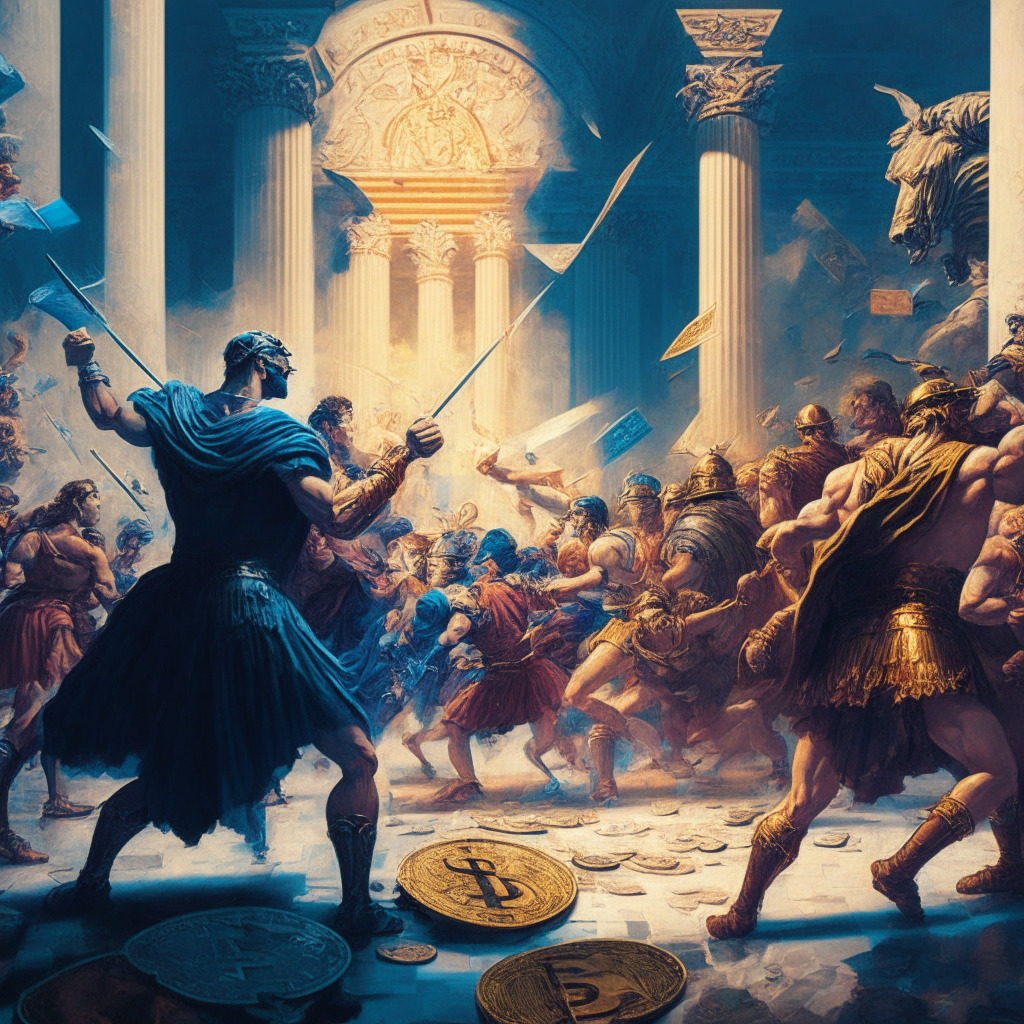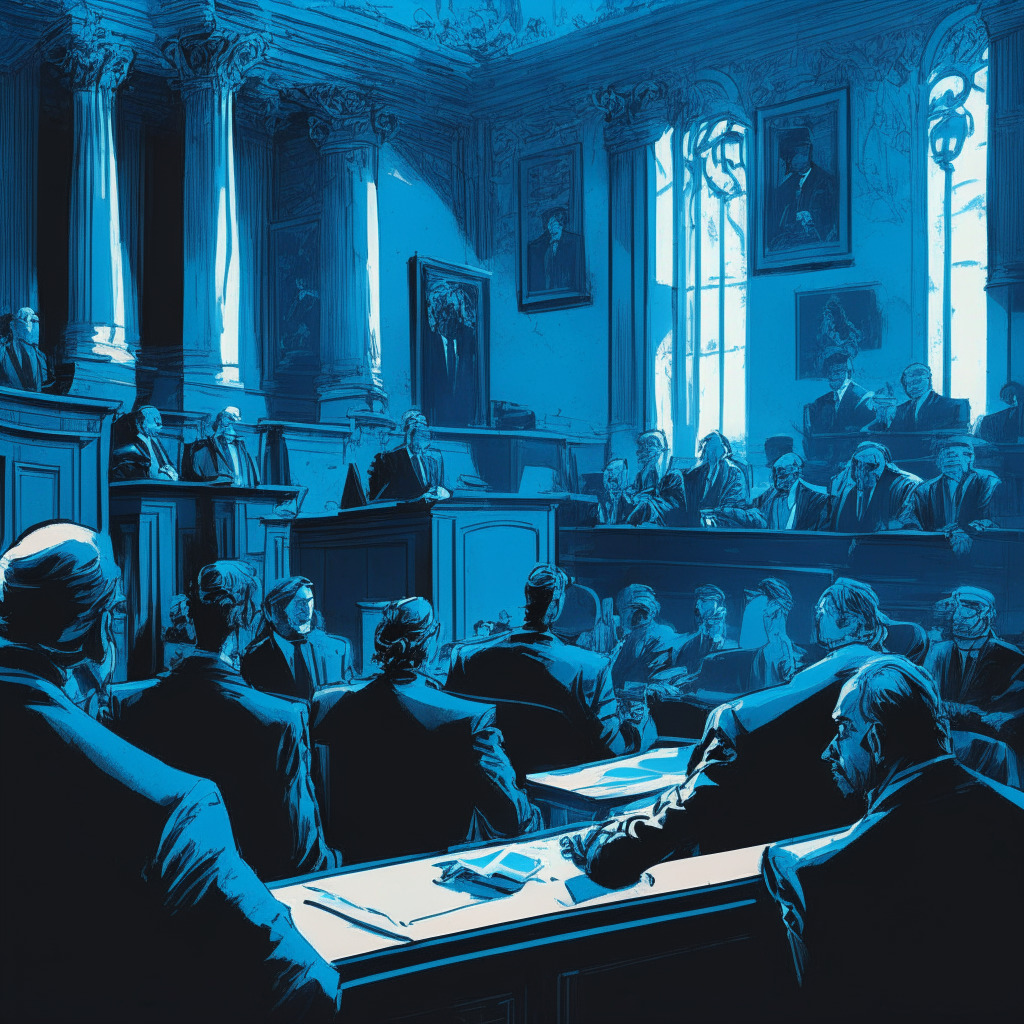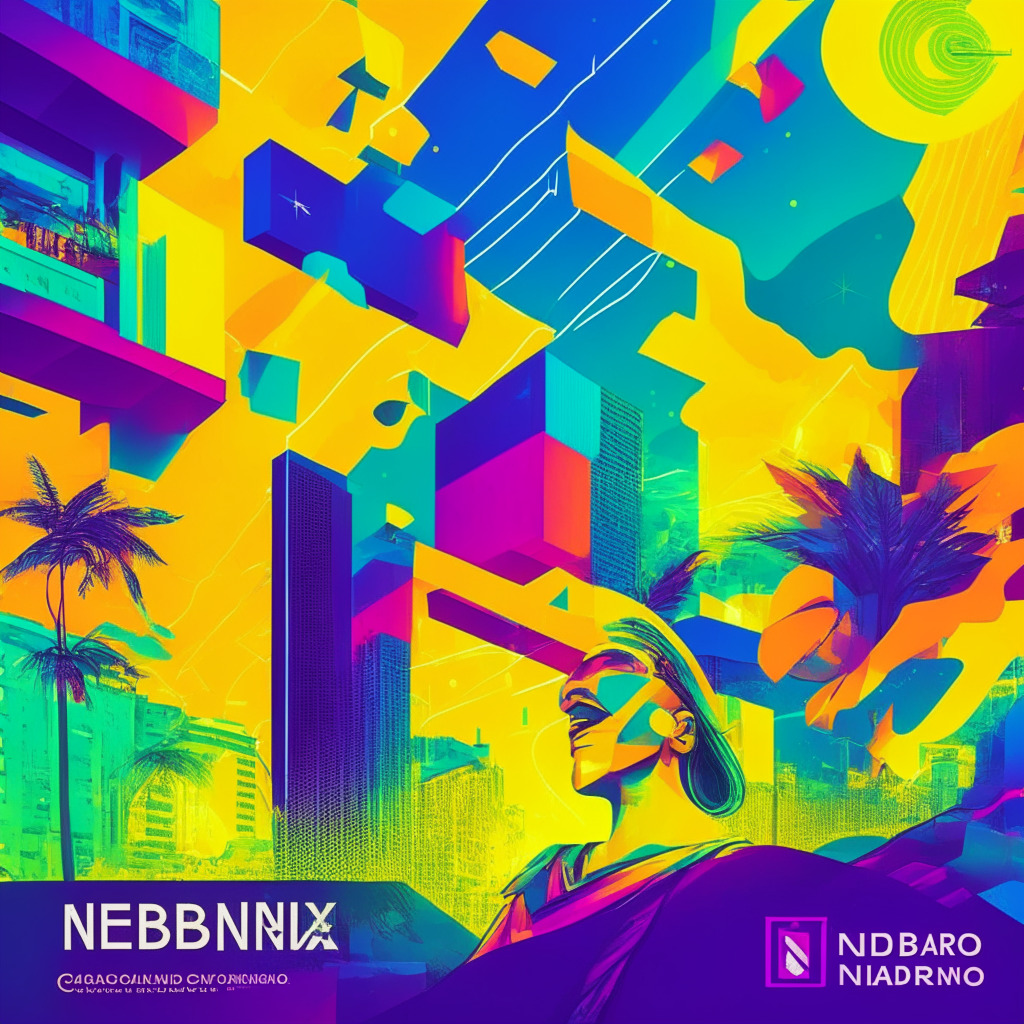Despite FTX’s collapse involving billions in lost investor value and alleged criminality, a recent survey by Axios and Harris Polling revealed it did not rank at the absolute bottom among 100 visible brands. FTX ranked above Twitter and Fox Corporation while Patagonia and Costco took top spots. The survey results highlight the impact of negative events on brand reputation and the potential for redemption through transparency and responsibility.
Search Results for: FOX
Growing Pains and Potential: Examining the Rise, Risks, and Rewards of the NFT Marketplace
This article discusses the evolving non-fungible token (NFT) market, featuring renowned figures, legal disputes, and novel projects. It emphasizes the growth of blockchain technology adoption in diverse industries and the need for thorough legal considerations, consumer trust and perhaps tighter regulation.
Navigating Privacy: Google’s Privacy Sandbox and the Future of Online Advertising
Google Chrome has unveiled a new ad-curating platform, “Privacy Sandbox,” aimed at eliminating reliance on third-party cookies and fingerprinting. This move, regarded as a significant shift in internet advertising, has sparked mixed reactions over its effectiveness in enhancing user privacy. The balance between targeted advertising and privacy remains a contentious industry issue.
Exploring the Political Spectrum: The Rising Influence of Bitcoin Mining and Cryptocurrencies
Senator Ted Cruz endorses Bitcoin, highlighting its potential in bolstering energy grid resilience—an advantage in emergencies, such as the recent Texas extreme weather. The stance reflects the growing influence of digital currencies, despite potential hurdles and economic turbulence.
Infamous Chisel Malware: A Wake-Up Call for Crypto Security on Android Devices
New malware, Infamous Chisel, targets Android users involved in cryptocurrency transactions, extracting private keys and information from applications such as Binance, Coinbase, and others. Its ability to access extensive data, though not highly sophisticated, emphasizes the importance of robust security measures.
Revising Crypto History: Runefelt’s Battle between Reality and Attraction Law
Crypto influencer Carl “The Moon” Runefelt, previously claimed to be a co-founder of cryptocurrency payment platform Kasta, but now insists that he was simply an investor. His sudden change of stance about his involvement and re-purported non-operational role, sparks questions about reliability in the volatile and fast-paced crypto industry.
Arbitrum Stylus: Next-Gen Tool for Crypto Coding or Just Another Developer Gimmick?
Offchain Labs, creators of the Arbitrum blockchain, have developed a tool called Arbitrum Stylus to tap into the larger developer community. This tool facilitates easier working with popular languages like Rust, C++, and C without departing from the Ethereum Virtual Machine standard. It seeks to bring more developers towards the Ethereum ecosystem, leveraging languages more common than Solidity, the main Ethereum coding language. The ultimate deployment of Arbitrum Stylus rests with the Arbitrum DAO community.
Dominating Stablecoin Market: How Tether Maintains Its Leadership Despite Regulation Tests
“Tether maintains its dominant position in the stablecoin market despite competition and regulatory challenges. With total assets at $86.1 billion, it demonstrates economic robustness, outpacing competitors such as USD Circle, and shows growing appeal among investors while weathering recent regulatory fines and market events.”
Busting AI Scams: The Downside to AI in Cryptocurrency Promotion
Researchers from Indiana University Bloomington discovered a botnet promotional scam exploiting AI language model ChatGPT to generate near-human messages, promoting cryptocurrencies on Twitter. Though the scam was revealed, Filippo Menczer, a lead professor at the University, cautions about the difficulty of uncovering such botnets, speculating about uncaught infiltrators in the complex network.
Unraveling Brazil’s Crypto Tax Reform: A Blessing or Curse for the Digital Age?
Brazil’s Congress is considering a bill to tax cryptocurrency as “financial assets”, specifically those held by Brazilians overseas. If passed, the legislation would level the tax field between crypto and traditional assets, potentially benefiting local exchanges. The bill might attract greater activity to Brazil’s national crypto exchanges and global players to establish local offices. However, there are concerns that the increased taxation could hamper the growth of the sector or deter foreign investment.
The Thrills and Spills of Home Crypto Mining: Endurance Amid Industry Giants
The world of crypto mining has evolved into a dominion of large-scale mining and finance behemoths, making individual mining increasingly doubtful due to high electricity and equipment costs. Despite these challenges, diehard enthusiasts continue to innovate solutions, believing in the potential of the crypto market.
Circle’s Reshaping Strategy: A Crisis Measure or a Pursuit of Global Markets?
Stablecoin issuer Circle has strategically pared down its workforce and redirected focus on its core business, in response to the prolonged downturn in cryptocurrency markets. They continue to employ globally in key areas and show growing interest in Asian markets.
Exploring the Future of TV Entertainment: Blockchain, NFTs, and the Case of Krapopolis
“Krapopolis,” the first blockchain-based series from FOX’s Web3 division, is stirring conversations around blockchain and TV shows. As an NFT holder, fans control show elements, unlock unique content, and gain access to cast meetups. Despite a downturn in NFT market, the television industry is enthusiastic about integrating blockchain technology.
Federal Scrutiny of Kraken’s Former CEO: A Brief on Crypto Sphere’s Latest Turmoil
Jesse Powell, co-founder of Kraken crypto exchange, is under investigation by federal authorities examining allegations of meddling with computer accounts and emails linked to a non-profit. Despite these accusations, neither Kraken nor Powell’s involvement with the exchange are under scrutiny.}
The Kraken Co-Founder Fallout: Cryptocurrency, Cybersecurity, and Ethical Dilemmas Wrapped in One
“Jesse Powell, co-founder of crypto exchange Kraken, is under FBI investigation over allegations of cyber attacks and obstruction of computer accounts. This situation casts a somber shadow over the crypto space, raising questions about moral conduct in a largely unregulated yet influential sphere.”
Surging Bitcoin Rally and BCH’s Triumph: Boon or Bane in the Crypto Sphere?
Bitcoin recently hit a new 13-month high, indicating a promising July ahead. Despite previous skepticism, BlackRock’s CEO, Larry Fink, suggested Bitcoin could potentially redefine finance, offering an attractive hedge alternative. However, a drop in Bitcoin Cash’s trading volume implies Korean interest may be dwindling.
BlackRock CEO’s Shift Towards Cryptocurrency: A Revolution or Risky Undertaking?
BlackRock CEO, Larry Fink, has suggested that the digital currency realm, led by Bitcoin, could overhaul the financial landscape. This is a significant departure from his previous skepticism towards cryptocurrencies. Fink now perceives benefits in greater tokenization of assets and securities, and even compared investing in Bitcoin to staking in gold. Despite the potential that tokenization and blockchain technologies hold, crypto remains a volatile entity.
Chainlink’s Proof-of-Reserves: True Transparency or Illusion of Accountability?
Chainlink’s proof-of-reserves service promises to allow crypto custodians to directly monitor real-world assets on blockchains, increasing safety and transparency for DeFi users. However, the durability of this solution is questioned as the credibility of data depends on the source, possibly masking inadequate accounting practices and reinforcing trust issues in centralized entities.
BlackRock’s Bitcoin ETF: Validation or Threat to Crypto’s Decentralized Ethos?
BlackRock’s application for a Bitcoin ETF has stirred mixed reactions in the crypto community, with some anticipating mainstream adoption, while others fear traditional financial giants may compromise core principles like privacy and decentralization, jeopardizing cryptocurrency’s disruptive potential.
Blockchain’s Role in Film Industry: A Creative Revolution or Risk to Artistic Freedom?
The documentary “Bad Like Brooklyn Dancehall” highlights the connection between dancehall music and blockchain technology, as it was supported by Decentralized Pictures, a nonprofit using crypto tokens and community voting to fund cinematic arts. The film’s production explores the potential of marrying artistic creations and blockchain, showcasing the pros and cons of this intersection.
Coinbase CEO’s Controversial Share Sale: Insider Trading or Mere Misunderstanding?
Coinbase CEO Brian Armstrong’s recent sale of 29,730 shares raised insider trading concerns in the crypto community. However, it was revealed that this pre-planned sale since August 2022 complies with Rule 10b5-1(c), a legal practice on Wall Street. The crypto community’s opinions remain divided on loyalty and transparency.
Crypto in Politics: Jack Dorsey Backs Pro-Bitcoin Presidential Candidate RFK Jr.
Twitter CEO Jack Dorsey supports pro-crypto Democrat candidate Robert F. Kennedy Jr., who accepts Bitcoin donations for his presidential campaign. Kennedy criticizes CBDCs as tools to suffocate dissent and condemns a proposed 30% tax on crypto mining.
XRP Lawsuit Updates: Estimated Victory Odds, Decision Timeline, and Post-Ruling Predictions
Pro-XRP lawyer John Deaton predicts a 25% chance of an outright win for Ripple in the SEC lawsuit, a 50% chance of a “splitting the baby” ruling, and under 3% chance of SEC’s outright victory. Deaton expects a final decision before September 30 and speculates Ripple could IPO following the lawsuit conclusion.
Ripple vs SEC Verdict: IPO Plans and the Future of Crypto Investments
The upcoming verdict in the Ripple Labs and SEC legal battle could either propel Ripple towards new heights or hinder its growth. Ripple held a private road show, hinting at a possible IPO. This decision will impact the crypto market and the future of cryptocurrency investments.
Brazil’s CBDC Pilot Project: Nubank and Crypto Firms Invited, Changing the Financial Landscape
The Brazilian Central Bank has selected crypto-friendly neobank Nubank among other firms for its central bank digital currency (CBDC) pilot project. The move signals a shift in attitude and possible recognition of incorporating crypto-related businesses in the development of a CBDC.
dYdX’s Decentralization Journey: Balancing Governance & Efficiency with subDAOs
dYdX, a decentralized platform known for perpetual contracts, is exploring the establishment of additional subDAOs to further decentralize its ecosystem management. As dYdX upgrades to its fourth version on the Cosmos blockchain, it aims to create a more inclusive governance model by allowing the wider community to actively participate in decision-making, potentially setting a precedent for decentralized trading platforms.
Hinman Documents Decision: Unveiling the Future of Digital Assets Regulation
The U.S. District Court’s recent decision on the Hinman documents marks a potential turning point for the global crypto industry regarding the characterization of digital assets. This high-profile Ripple Labs case could influence future regulatory decisions and either usher in a new era of regulatory clarity and innovation or create a stifling regulatory environment, affecting the growth potential of the crypto industry.
Lack of Audits and Independent Boards: Crypto Firms Risking Collapse?
A recent Bloomberg report reveals that numerous influential crypto firms do not work with external auditors and independent boards, raising questions about transparency and professionalism in the cryptocurrency space. This lack of regulation persists despite the high-profile collapse of the FTX exchange and Alameda Research due to poor management and misappropriation of funds.
Mandela Comics Gaming Adaptation: Exploring Opportunities and Challenges with NFT Integration
Blair Witch Project Executive Producer, Kevin Foxe, commits to developing a video game adaptation of Mandela comics featuring NFTs across multiple blockchains, ushering in opportunities and engagement for gaming enthusiasts. However, potential challenges include high transaction fees, environmental impact, and market saturation.
Bitcoin’s Limitations vs Cardano’s Potential: Blockchain’s Evolution and the Future of Crypto
Charles Hoskinson, founder of Cardano, highlights Bitcoin’s limitations and the potential of programmable money and smart contracts offered by cryptocurrencies like Cardano’s ADA. He suggests blockchain technology can support complex challenges and provide a decentralized, inclusive global system, and emphasizes the importance of adaptability and progress in the fast-paced world of blockchain technology.
Banking Crisis: Opportunity for Crypto Growth or Risky Financial Shift?
In the wake of the ongoing banking crisis, key opinion leaders and cryptocurrency founders express satisfaction at the decline of traditional banking systems, hinting at the potential rise of cryptocurrencies. However, it’s crucial to acknowledge the ongoing challenges and risks associated with digital currencies and maintain a balance between innovation and caution.
Rand Paul’s Dollar Warning: A Reality Check or Fear Mongering of a Currency Apocalypse?
U.S. Senator Rand Paul recently warned that the U.S. dollar could lose its status as […]































